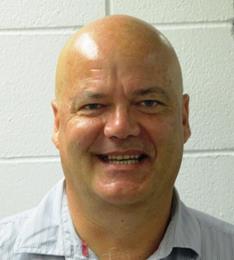About Certificate (Core) Courses
Summary Table
ICAMH Certificate Coursework Requirements are given here
CORE COURSES (aka Certificate Courses) | |||||
Course Name | Course Code | Semester | Points | Teaching Days 2023 | Funding |
Child & Adolescent Development | PSYCHIAT 747 | 1 | 15 | 20 & 21 Feb | Te Pou |
Child & Adolesent Psychopathology | PSYCHIAT 740 | 2 | 15 | N/A | Te Pou |
Assessment, Formulation & Treatment Planning in ICAMH | PSYCHIAT 768 | 1 & 2 | 30 | 22 & 23 Feb, 22 & 23 May, 7 & 8 Aug, 6 & 7 Nov | Te Pou |

Child & Adolescent Development, PSYCHIAT 747
747 Course Objectives
The Psychiat 747 course is aimed at clinicians working in child and adolescent mental health who wish to advance their knowledge and understanding of child and adolescent development.
At the end of the 747 course you should be able to:
- In the clinic, explain, to clients and their families, and to colleagues (other health professionals, teachers, etc.), developmental processes and concepts relevant to client and family experiences and problems, and to planned assessments and treatments.
- Explain, to clients and their families, and to colleagues, the relation between development and context, including age, gender, culture, socio-economic status, and ethnicity.
- Compare and contrast perspectives on development particular to New Zealand, especially Māori, Pakeha and Pacific Island perspectives.
- Access, search, critically appraise, and apply the current research literature on psycho-social development.
Topics
- Attachment and Brain Development
- Development in Infants and Toddlers
- Development in Pre-schoolers
- Development in Middle Childhood
- Development in Adolescence
- Risk and Protective Factors
Coursework: Hours & Marks
PSYCHIAT 747, Child & Adolescent Development, Single Semester Course, 15 points, 150 hours | ||
COMPONENT | HOURS (approx) | % MARKS (as applicable) |
Face-to-face teaching (a two-day block on campus) | 15 |
|
Online (Pre-recorded) presentations / interviews | 10 |
|
Additional Online Material on Canvas for each topic | 10 |
|
Guided reading Prescribed book and selected journal articles (online) | 65 |
|
Online Reflections - students post explanations of how what they have come across links to topic (aspect of Development) | 4 |
|
Online short comments - students respond to each others' Reflections) | 12 | 25 |
Student presentations (Students present to each other on examples of development in small regional groups) | 12 | 25 |
Written assignment - examples of development | 12 | 25 |
Multiple choice questions (from prescribed text) | 10 | 25 |
Readings
Prescribed Book
Child Development: A Practitioner's Guide, Third Edition by Douglas Davies
Other Readings
Readings are selected for each topic and are available to registered students online via the University Libraray
Course Coordinators
 |  |
| Vas Ajello | Sarah Hetrick |
Child & Adolescent Psychopathology, PSYCHIAT 740
740 Course Objectives
The Psychiat 740 course is aimed at clinicians working in child and adolescent mental health who wish to advance their knowledge and understanding of child and adolescent psychopthology.
At the end of the 740 course you should be able to:
- Outline commonly used models of psychopathology
- Discuss the utility and limitations of classification, particularly with respect to the Diagnostic and Statistical Manual of Mental Disorders (the DSM-5).
- Apply the DSM criteria of common and important disorders
- Describe the history, presentation, diagnostic and associated features, course, and prognosis, of these disorders
- Be familiar with the aetiology, comorbid disorders and epidemiology of these disorders.
- Identify cultural and developmental variations and issues in the conceptualisation and definition of these disorders
- Search, access, critically appraise, and apply the current research base for the disorders
Topics
- Models of Psychopathology, Classification & the DSM, and Māori Youth and the DSM
- Externalising Disorders: ADHD and Conduct Disorder
- Anxiety, Obsessive-Compulsive, and Trauma & Stressor-Related Disorders
- Neurodevelopmental Disorders (Autism, Intellectual Disability & Learning Disorders)
- Disorders related to Physical Functions
- Depressive and Bipolar Disorders (Mood Disorders); Self-Harm and Suicide
- Psychoses and Substance Use Disorders
Coursework: Hours & Marks
PSYCHIAT 740, Child & Adolescent Psychopathology, Single Semester Course, 15 points, 150 hours | ||
COMPONENT | HOURS | % MARKS (if applicable) |
Online (Pre-recorded) presentations / interviews | 18 |
|
Additional Online Material | 10 |
|
Online tutorials | 1 |
|
Guided reading | 65 |
|
Online short comments | 5 |
|
Clinical experiences | 10 |
|
Online Reflections | 15 | 30 |
Two Comprehensive Diagnoses | 14 | 40 (2 x 20) |
Multiple choice questions | 12 | 30 |

Readings
Prescribed Book
Abnormal Child Psychology, 7th Edition by Eric Mash, David Wolfe
Other Readings
Readings are selected for each topic and are available to registered students online via the University Libraray
Course coordinators
 |  |
| Vas Ajello | Sarah Hetrick |
Assessment, Formulation, Treatment Planning, PSYCHIAT 768
768, Course Objectives
The Psychiat 768 course is aimed at clinicians working in child and adolescent mental health who wish to advance their knowledge and use of assessment, formulation and treatment planning.
At the end of the 768 course you should be able to:
- Complete mental health assessments with children and adolescents with a range of mental health problems,
- Understand the strengths and limitations of different kinds of child and adolescent mental health assessment
- Demonstrate appropriate child & adolescent interviewing techniques
- Structure, analyse and present information gathered in assessments into coherent formulations that in turn guide comprehensive treatment plans.
- Demonstrate awareness of cultural issues in mental health assessment and treatment planning
- Demonstrate awareness of issues of concern to users of mental health services
- Demonstrate awareness of substance use as it relates to child and adolescent mental health issues.
Topics
- Fundamental clinical components, e.g. mental state exam, structured observation, risk assessment, formulation, treatment planning
- Taking account of Māori and other cultures
- Different ways of conceptualising cases and how these are reflected in different ways of working
- Assessment, formulation and treatment planning for different kinds of disorders
- Areas for particular attention, e.g. ethics, working with gender diverse youth, consumer perspectives
Coursework: Hours & Marks
PSYCHIAT 768, Assessment, Formulation & Treatment Planning for Infant, Child & Adolescent Mental Health, Double Semester Course, 30 points, , 300 hours | ||
COMPONENT | HOURS | % MARKS (if applicable) |
Face-to-face teaching (there are four 2-day blocks) | 65 |
|
Additional Online Material | 23 |
|
Online tutorials x 2 | 2 |
|
Guided reading | 125 |
|
Analysis of an Assessment - Students observe and analyse an assessment conducted by a colleague | 5 | 5 |
Assessment Instruments Assignment - students list and evaluate standardised assessments | 10 | 15 |
Video Assignment (Baseline) - students present clips from an ordinary assessment interview w a Client | 10 | 5 |
Working with a Maori Client - students describe an assessment with a Maori client. | 10 | 10 |
Clinical Components - Students post 8 components (e.g., MSE, risk, formulations, treatment plan) | 20 | 20 |
Case Study (with video) - students submit video recording of a complete assessment interview with an accompanying report. | 25 | 30 |
Multiple choice questions - based on prescribed book | 5 | 10 |
Personal Improvement Plan - students hand in an improvement goal with measures of progress | 5 |
|
Readings
Prescribed Book
Abnormal Child Psychology, 7th Edition by Eric Mash, David Wolfe
Other Readings
Readings are selected for each topic and are available to registered students online via the University Libraray
Course Coordinators
 |  |
| Vas Ajello | Hiran Thabrew |




